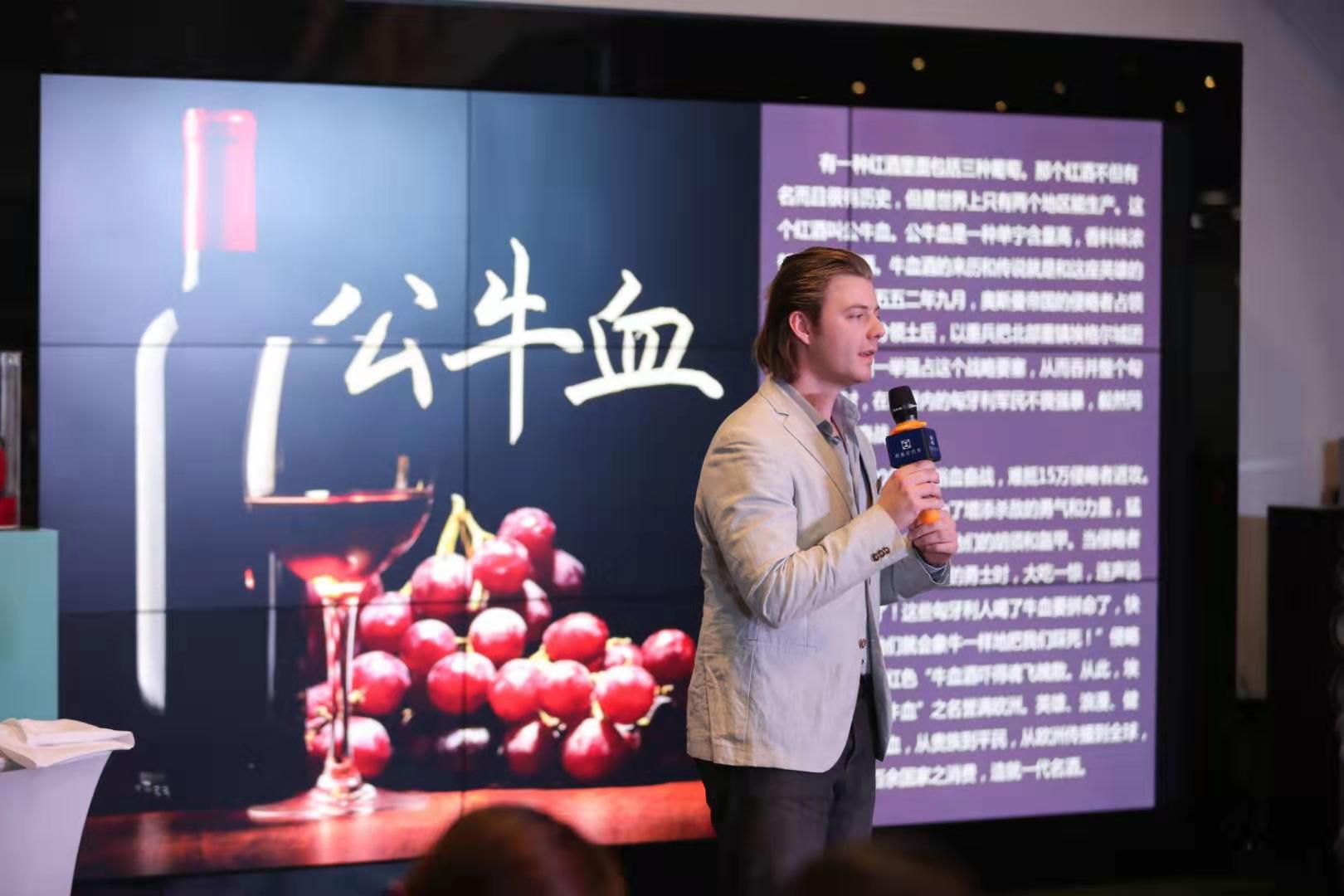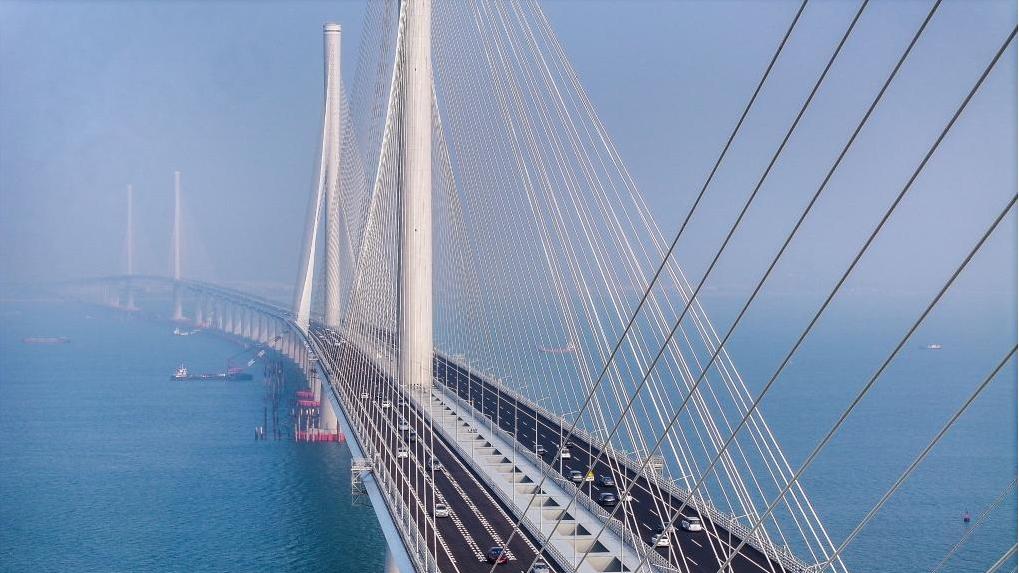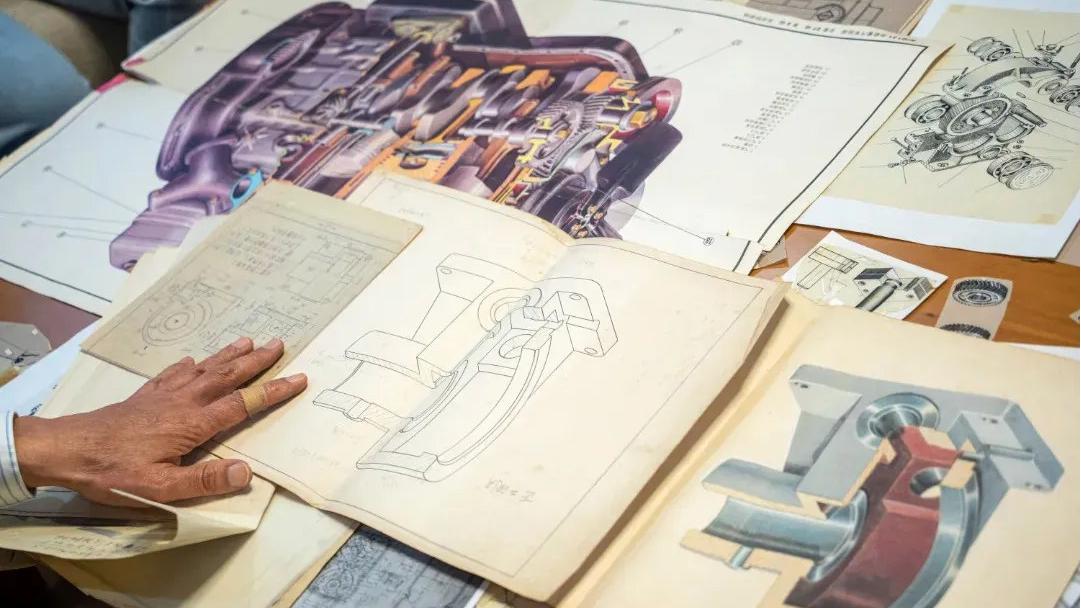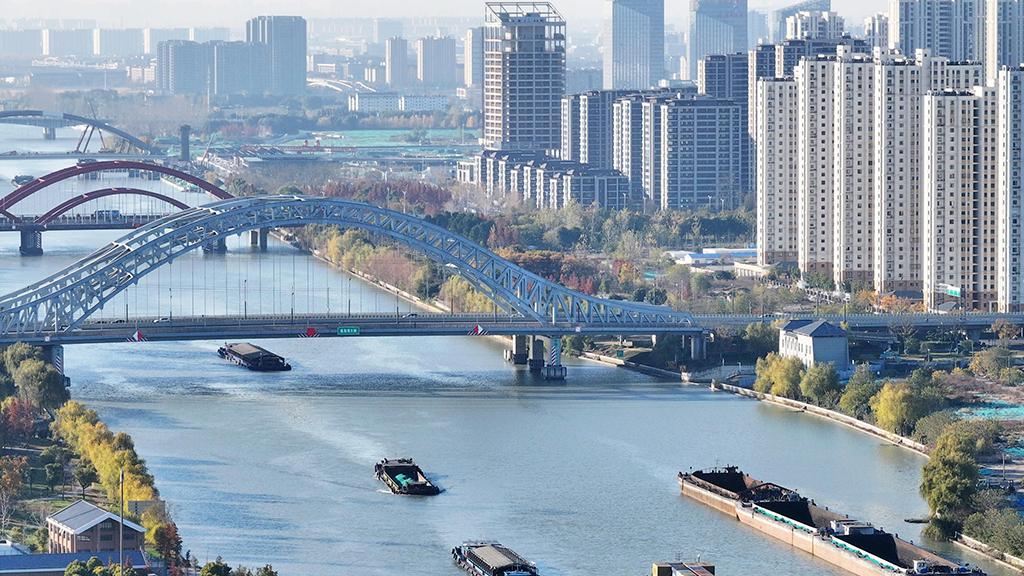Hungarian wine across seas: A foreign entrepreneur's cross-cultural journey

Tihanyi Istvan speaks at a wine tasting event. (Photo provided to People's Daily Online)
Two decades ago, Tihanyi Istvan, a Hungarian national, could scarcely have imagined his journey leading him to China. Today, fluent in Mandarin and deeply immersed in Chinese culture, he considers China his second home—a place where both his business and personal life flourish.
"I once thought that China was too far away, a place I could never reach," he said. "But when I came here in 2012 to study Chinese, I was immediately captivated by the culture, the people, and the way of life. It felt like I had found a second home."
From humble beginnings to wine maestro
After about 12 years in China, Istvan has evolved into more than just a successful entrepreneur. He has seamlessly woven his Hungarian heritage into the vibrant tapestry of north China's Tianjin Municipality where he operates a thriving Hungarian wine store.
His foray into the wine business was a matter of chance. "After graduating from Tianjin University, I struggled to find a job," he said. "Then a Hungarian winery approached me, needing someone fluent in both Chinese and Hungarian to help them enter the Chinese market." Seizing the opportunity, Istvan delivered exceptional results, forging a long-term partnership that would shape his future.
However, the path to success was not without its obstacles. Introducing Hungarian wines to a market dominated by French varieties required considerable effort. To bridge this gap, Istvan hosted numerous wine tasting events, passionately sharing the rich heritage of Hungarian viticulture.
"For me, cultural understanding begins with food," he said. His wine tastings became more than product showcases; they were immersive experiences in Hungarian culture. With each glass of wine, he offered guests a glimpse into Hungary's history, traditions, and craftsmanship. These events quickly built a loyal customer base, as patrons developed a personal connection to Hungary with every sip.
"Seeing guests savor each sip and bite, fully appreciating the story behind the wine, was incredibly rewarding," Istvan said.
During his entrepreneurial journey, Istvan was deeply touched by the warmth and generosity of the Chinese people. In the early stages of his business, he was completely unfamiliar with the local government's specific requirements. However, with the help of local consultants, he gradually understood the regulations and overcame many obstacles. Additionally, the support from the local community played a pivotal role in his success. Many local wine enthusiasts reached out to assist him when he struggled to find customers, introducing his wines to local restaurants and other potential clients. This sense of community support not only helped him expand his customer base but also forged lasting connections, which were crucial for the growth of his business in China.
"The kindness and encouragement I received from the people here made all the difference, allowing me to quickly introduce my wine to the market," he said.
"The support I've gotten has not only fueled the growth of my business but also deepened my appreciation for the strong bond between our two countries," he added.
Blossoming through bilateral bonds and favorable business environment
Istvan believes his business success is closely linked to the strengthening relationship between China and Hungary, as well as significant improvements in China's business environment.
"Before 2015, the Chinese showed little interest in Hungary," he said. However, after Hungary became the first European country to sign a Belt and Road cooperation agreement with China in 2015, bilateral ties expanded rapidly across political, trade, and cultural dimensions. This partnership ignited a growing interest in Hungary's landscapes, culture, and notably, its cuisine.
"Many customers come to my store because they've visited Hungary and fallen in love with Hungarian wines, or they're planning a trip and want to experience the wines before they go," he said.
According to Istvan, the Belt and Road Initiative has not only attracted more customers but also significantly reduced operational costs. Importing Hungarian wines has become simpler, thanks to lower tariffs, more efficient customs procedures, and smoother logistics. These improvements have lowered expenses, making it more affordable and efficient to bring Hungarian wines to the Chinese market. The deepening economic and trade ties between the two countries have fostered a favorable business environment, enabling smoother operations and cost-effective growth.
"I'm truly pleased to see the growing relationship between our two countries," Istvan said.
He has also witnessed firsthand the remarkable improvements in China's business environment over recent years, which have greatly benefited his operations. One of the most notable changes has been the reduction in taxes and the simplification of regulations.
"Taxes, including value-added tax and import duties, are significantly lower compared to six years ago," he said. "Industry-specific regulations have also become less complex, making it easier for foreign businesses like mine to operate in China."
China's recent visa-free policies have also contributed to a business-friendly environment. The influx of foreign visitors has created a growing market for imported goods, including Hungarian wines. "More foreigners coming to China means more potential customers for imported wines," he said. This surge in international travelers has sparked renewed interest in foreign products, opening new opportunities to expand his customer base.
Moreover, easing visa restrictions has facilitated smoother collaboration with international partners. Istvan finds it easier to engage with wine distributors and importers abroad, strengthening his supply chain and ensuring his products reach a wider audience.
These advancements in China's business landscape, combined with enhanced international cooperation, have created a thriving market for his products. Istvan remains optimistic about the future, as these positive changes continue to open up new avenues for growth and expansion.
"This favorable environment has emboldened me to invest with more confidence, expand my operations, acquire a wider range of high-quality products to offer my customers, and seek innovative ways to promote my products," he said.
Looking forward, Istvan envisions establishing a larger Hungarian cultural center in China. "I want to create a space where people can not only enjoy Hungarian wines but also immerse themselves in Hungarian culture," he said. "This center would serve as a hub for cultural exchange, fostering deeper understanding and appreciation between two nations."
Istvan's success in Tianjin is not just a personal achievement but a reflection of the fruitful partnership between the two nations and the increasingly welcoming business environment in China. As his business continues to flourish, his journey serves as an inspiring beacon for others, encouraging them to embrace new horizons and seize the abundant opportunities that China offers to foreign entrepreneurs.
Photos
Related Stories
- Brands see rising global influence
- Swimwear industry thrives in Xingcheng, NE China's Liaoning
- World Chinese Entrepreneurs Week held in Dubai
- Cabbage produced in county in C China's Hubei makes its way to global market
- E China's Pingdu produces 70 percent of world's false eyelashes
- Probe into U.S. company PVH Corp underway: China's commerce ministry
- 2024 IDF innovation award winner Yili, from industry newcomer to global leader: Chinese dairy expert
Copyright © 2024 People's Daily Online. All Rights Reserved.









